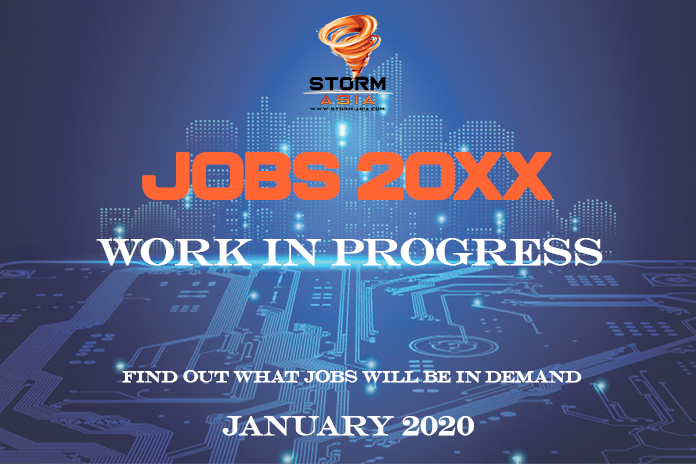
RISING retrenchments and an unemployment rate that is creeping upwards in Singapore must be making many nervous about what lies ahead.
Manpower Minister Josephine Teo tried to explain this against Singapore’s strong employment growth on social media thus: “It could be jobseekers not having the skills to access available jobs, or jobs being insufficiently attractive. Closing the gaps requires both jobseekers and employers to be more open and flexible.
“Jobseekers naturally prefer to return to their past occupations or industries. The better opportunities may, however, lie elsewhere. Some training and adjustment may be needed.”
It’s still uncertain what the real reasons may be, so it’s best to be prepared for the uncertainties ahead since not many really know what’s around the corner and how it will affect our lives and livelihoods.

This is among the slew of issues that employers and employees face in a situation where skilled workers are hard to come by, and suitable jobs are constantly being tweaked and out of reach of the more conventionally trained.
JOBS20XX – Work In Progress, is a regional series which commences in January 2020. It addresses a range of issues around careers, employment and industries on the rise and those that may not have much longer to run.
What should you study? What businesses will be in demand? What skills will be sought after? Lots of questions…and some answers may lie in the discussions that will span industries and experiences culled over decades or from the visionary minds that will converge at JOBS20XX – Work In Progress.
Share your ideas or concerns about the future of your job or your industry. Email editor@storm-asia.com with your thoughts, or if you would like to take part in the JOBS20XX – Work In Progress series.
10 Job Skills You’ll Need in 2020 and Beyond
The desirable jobs from the past have given way to new skills acquired with the help of technology and the accelerated speed of change.
Based on a survey of the Chief HR officers at some of the world’s leading companies, the World Economic Forum (WEF) has released The Future of Jobs report revealing the top 10 skills you’ll need by 2020.
Here’s the list for you to mull over as you wait in line for that next job.
- Cognitive flexibility
Cognitive flexibility is the ability to quickly and easily swing back and forth between different systems of thought (e.g. the creative brain, mathematical brain, critical thinking brain, etc.)
- Negotiation
Social skills will become more important than ever in the future, across all domains and all functions. Even people in purely technical occupations will be expected to show greater interpersonal skills and being able to negotiate with their colleagues, managers, clients and teams.

- Service orientation
The ability to actively look for ways to help people and anticipating what their needs will be in the future is greatly sought-after skill that you’ll need in the future.
- Judgement and decision-making
The ability to make sound judgement calls and strong decision-making skills will be needed. In a world with more and more data, organisations have a growing need for employees who can sift through the numbers, find actionable insights, and use big data to inform business strategy and decisions.
- Emotional intelligence
Co-author of Emotional Intelligence 2.0, Travis Bradberry explains that emotional intelligence “is the other kind of smart”. It’s that intangible “something” that helps us tune in to the kaleidoscope of human emotions, and measures how adept we are at adjusting our behaviour depending on the mood of a colleague, partner, family member, or even our own feelings.

- Coordinating with others
This skill points to the emerging trend of companies putting more emphasis on strong interpersonal skills. Collaboration is crucial in any work environment and WEF clearly states that “human interaction in the workplace involves team production, with workers playing off of each other’s strengths and adapting flexibly to changing circumstances”. This non-routine interaction will give humans a leg up on the machines.
- People management
Employees will always be a company’s most prized resource. It is vital that in the future, managers and team leaders know how to motivate their teams, maximize their productivity and respond to their needs.
Being a great manager has a lot to do with emotional intelligence, knowing how to delegate, and developing your own management style.
Likewise, employees should see how they can add value to an organization. Add to the bottomline and keep the workplace lively and harmonious. Quit playing office politics.
- Creativity
Creativity is predicted to become a key skill in the future. As the WEF senior writer Alex Gray explains: ‘With the avalanche of new products, new technologies and new ways of working, employees are going to have to become more creative in order to benefit from these changes.”
“Robots may help us get to where we want to be faster, but they can’t be as creative as humans (yet).”
- Critical thinking
Critical thinking involves being able to use logic and reasoning to interrogate an issue or problem, consider various solutions to the problem, and weigh up the pros and cons of each approach.
- Complex problem-solving
Complex problem-solving is defined by the report as the capacity “to solve novel, ill-defined problems in complex, real-world settings”.
It’s all about having the mental elasticity to solve problems we’ve never seen before, and being able to solve them in a world that’s becoming more complex by the day.
Frank Aernout is the CEO of Nalantis, which develops software to meet the needs of a changing world. Nalantis is partnering STORM-ASIA in JOBS20XX – Work In Progress.
Images: Shutterstock






















